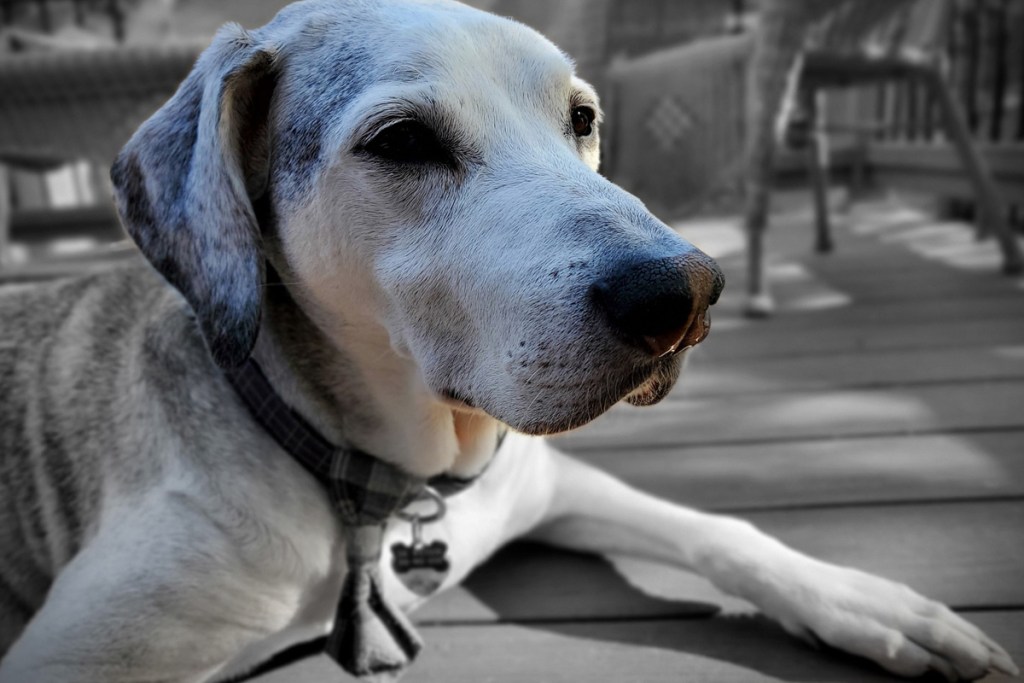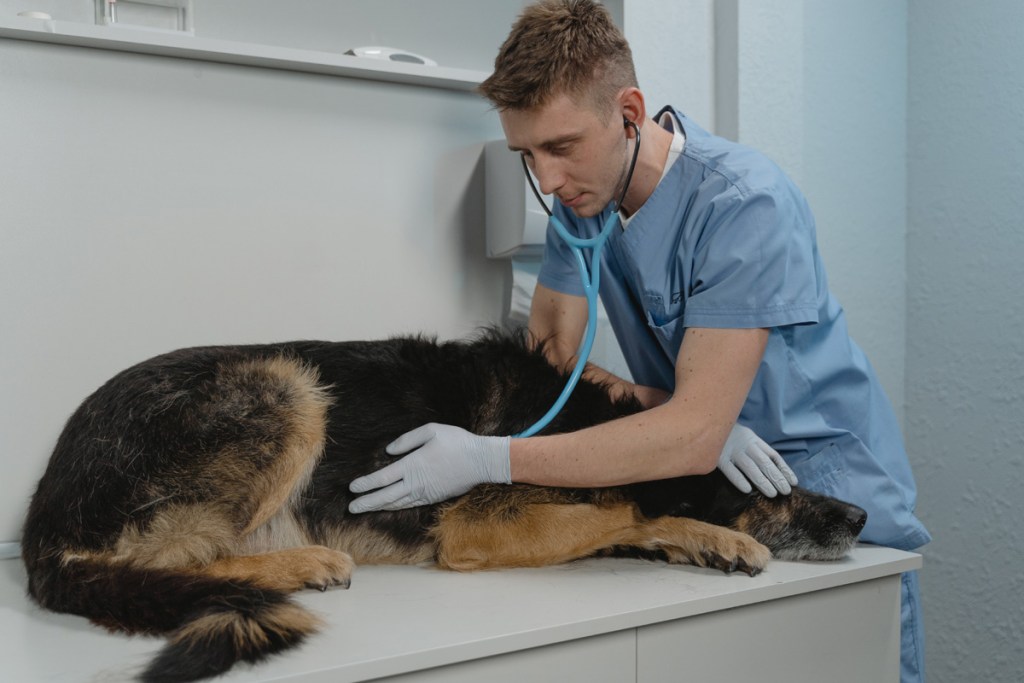Typically, when it comes to senior dogs, pet parents struggle to get obesity under control. The Association for Pet Obesity Prevention estimates that 55.8% of pets are overweight, with older dogs especially suffering from obesity. A planned weight-loss program can help these dogs avoid numerous health risks. But significant weight loss is also a cause for concern in senior dogs. If you notice unintentional weight loss, it’s essential to take your pet to the vet for a health checkup. Rapid weight loss, especially over a short period, could be a sign of a serious underlying senior dog health problem.
Five common causes of weight loss in senior dogs
Dental problems
Weight loss in older dogs can be caused by dental issues such as decaying teeth, gingivitis, or gum disease. Your dog may also have a more serious condition such as a tumor. Veterinary experts say that if left untreated, dental disease can lead to other health issues such as diabetes and heart disease. In addition to weight loss, symptoms of dental problems include:
- Excessive drooling.
- Difficulty eating/chewing (the dog may start dropping food while trying to eat).
- Bad breath.
- Swollen or bleeding gums.
Treatment may include the extraction of decayed teeth and antibiotics if there’s an infection, and your veterinarian may suggest a new dental care routine.

Diabetes
According to the American Veterinary Medical Association (AVMA), most dogs are diagnosed with diabetes between the ages of 7 and 10. It occurs in females twice as often as males, and certain breeds may be more predisposed to the disease. Diabetes occurs when the body cannot use glucose normally, and dogs can lose weight despite eating more food. Other symptoms include:
- Excessive water drinking and increased urination.
- Cloudy eyes.
- Chronic or recurring skin and urinary infections.
Successful treatment of diabetes requires regular examinations, blood and urine tests, and monitoring your pet’s weight, appetite, drinking, and urination. Veterinary experts say that with proper management and veterinary care, diabetic dogs can live long and healthy lives.
Cancer
According to the AVMA, more than half of dogs over age 10 will develop cancer. A diagnosis of cancer may be based on X-rays, blood tests, and the physical appearance of tumors. Veterinarians say that the ultimate test for cancer is confirmation via a biopsy. In addition to weight loss, symptoms of cancer in dogs may include:
- Decreased appetite.
- Sudden lethargy.
- Unusual bleeding.
- Lumps, bumps, or swelling.
- Distended abdomen.
- Limping or lameness.
Chemotherapy, radiation or surgery, or a combination of these can be used to treat cancer in dogs. According to the American Kennel Club, as the cancer research field has grown for humans, there have been great improvements in the care of animals with cancer as well. These improvements allow for more accurate diagnoses and better treatments for dogs.
Liver disease
In an article published on PetMD, veterinarian Jennifer Kvamme describes the liver as “a multipurpose organ that detoxifies the blood, helps break down drugs, metabolizes sources of energy, stores vitamins, and glycogen, produces bile acids necessary for digestion, and manufactures important proteins necessary for blood clotting.” According to Kvamme, one of the most common symptoms of liver disease is jaundice, a yellowish tinge to the skin most often noticed in the eyes, gums, and ears. In addition to weight loss, other common symptoms include:
- Decreased appetite.
- Vomiting and diarrhea.
- Increased drinking and urination.
- Changes in stool color.
Treatment for liver disease can include fluid therapy, antibiotics, medications to control vomiting and gastrointestinal inflammation, or surgery to remove cysts, gallstones, or cancerous portions of the liver. Kvamme says that depending on the severity of the liver disease, if the cause is addressed before long-term damage occurs, the prognosis can be excellent.

Chronic kidney disease
Experts at the VCA hospital group say chronic kidney disease in dogs is associated with aging. For most small dogs, the early signs of kidney disease occur around 10 to 14 years, while larger dogs may develop the disease as early as age 7. One of the earliest symptoms is increased water consumption and urination. In addition to significant weight loss, other symptoms include:
- Poor appetite.
- Vomiting.
- Diarrhea.
- Bad breath.
Kidney failure is diagnosed by doing a complete urinalysis and a blood chemistry analysis. With early diagnosis and aggressive treatment, many dogs will live a normal lifestyle for many months or years, according to the VCA hospital group.
Unfortunately, your senior dog can’t tell you when he’s feeling bad. As a responsible pet parent, it’s up to you to be on the alert for changes. And when you see that he’s starting to shed pounds, you need to act quickly. The sooner you have him checked by a veterinarian, the sooner he can get on a treatment plan. The last thing you want is for your friend to suffer when veterinary intervention could provide him with a good quality of life in his senior years.



